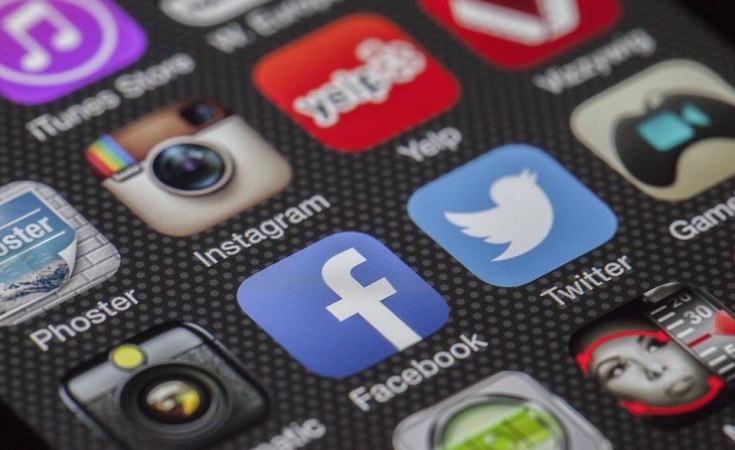Mauritius' communications regulator recently shut down access to social media platforms until a day after the upcoming general election, due to be held on 10 November 2024. The decision was reversed a day later. Nevertheless, the move came as a surprise to many - Mauritius is often touted as a beacon of democracy in Africa.
Roukaya Kasenally, a scholar of democracy and media with a focus on Mauritius, spoke to The Conversation Africa about the shutdown, why it happened and what this tells us about the state of freedom in the island nation.
Why did the government shut down social media?
The social media ban was no doubt directly linked to leaked audio clips. These brought to light alleged conversations between a number of key individuals including the prime minister, the commissioner of police, ministers and members of the judiciary. Some of these conversations touched on sensitive issues, like police brutality and institutional interference.
The main justification for the social media ban was therefore national security - as conversations of the prime minister had been intercepted on his private and secure line and were being shared on social media.
The prime minister initially dismissed the leaks as doctored by artificial intelligence. But coverage of the leaks began to gain traction, and that's when the social media ban was imposed. It was lifted within 24 hours following an enormous backlash both locally and internationally.
Has a social media ban happened before?
It is the first time that social media have been banned in Mauritius. But there have been concerns about digital freedoms more generally.
The latest Ibrahim Index of African Governance - a tool that measures and monitors governance performance in African countries - showed that Mauritius' digital freedom dropped by 21.7% in the last decade. It's now ranked 25th (out of 54) in Africa, even though Mauritius has a national strategic plan to transform the country into a digitally advanced, inclusive society by 2030.
There's also been a tightening of legislation concerning cybersecurity and cybercrime in Mauritius that criminalises any offence committed by social media users.
The clampdown on social media is a matter of concern in a country where social media are extremely popular. The majority of Mauritians get their news from social media and 85% of the Mauritian population are Facebook users.
What is the state of media freedom in Mauritius?
The social media ban must be contextualised as part of a generalised erosion of democratic rights and liberties in Mauritius.
This trend has been happening over the last 10 years, but has accelerated since 2019 due to the introduction of a number of projects aimed at monitoring and controlling data.
The Mauritius Safe City project, for instance, is rolling out 4,000 cameras (with facial recognition capacity) across the island. Pitched as an idea to enhance safety and security, the project has become a source of concern. Citizens are worried that it infringes on their political rights and civil liberties.
In 2021, the Information and Communication Technologies Authority wanted to amend the law so that there would be greater social media regulation. The proposal had a great deal of local and international push-back as it was seen as a means to control data on social media platforms.
In 2023, it became mandatory for citizens to re-register sim cards or have them de-activated. There were concerns about the potential intrusion into citizen data. A case was lodged in the Mauritian supreme court and the matter is still pending.
Aside from data monitoring concerns, there's also been a crackdown on the freedom of speech in Mauritius.
After making posts online, a number of journalists and ordinary citizens have been harassed and some have even been arrested under the "offences" subsection of the Information and Communication Technologies Act (2001). They were targeted because their posts were deemed critical of the current regime. The ICT act has severely shrunk the digital space.
The media have been further targeted with laws which impose hefty fines on media houses and journalists, require journalists to reveal their sources and require media houses to reapply for their licence every year instead of every three years.
Greater levels of scrutiny and control over recent years have had the chilling effect of self-censorship among certain journalists.
Some journalists have been harassed or at times barred from press conferences of the ruling party.
This erosion of freedoms has been reflected in various democratic rankings. In the last decade, Mauritius has lost its status of liberal democracy to become an electoral autocracy - a country where the government maintains tight control over political power. In the latest Ibrahim Index of African Governance, the island was classified as "increasing deterioration" on democracy.
What does this say about the state of the country's politics today?
Under the current government, which came to power in 2019 in an election marred by irregularities, some key institutions have been captured. These include parliament and the police. The executive in Mauritius appears to be bent on entrenching its power and control.
The executive now has the upper hand in decision-making and minimises checks and balances. There have also been several attempts to rein in the powers of the director of public prosecution by undermining the independence and autonomy of that office.
The island's democratic backsliding is a matter of great concern. Mauritius is currently hit by a triple whammy - an ageing population, a declining population and significant brain drain. As the country moves to address these challenges, the government must be accountable to the people.
Roukaya Kasenally, Democracy scholar and Associate Professor in Media and Political Systems, University of Mauritius


